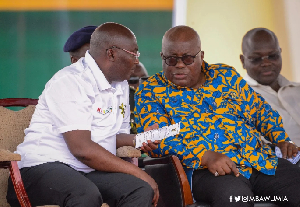In the Republic of Congo, one of the contesting opposition candidates in the recently held presidential election has said he will file a lawsuit to overturn the results.
Mathias Dzon, a former finance minister, who got 1.9 per cent of votes said Monday he will file his election petition at the country’s Constitutional Court.
He did not say when this will happen.
"The candidates' representatives did not participate in the compilation. What are the results that they are giving here? It surprises me. Is there a rush to hide something? It's not in a day that we can compile all the results from the Congo. Look, there is something that surprises me: In most of the results, we follow the order of presentation of candidates on the ballot. So this is something preconceived that they are doing and, even if we manage to get all the results, Congolese will not accept this", Dzon said.
President Denis Sassou Nguesso, 77, was re-elected with 88.57 per cent of votes, according to provisional results released Tuesday.
Sunday’s election was boycotted by the main opposition. It was overshadowed by the death of main rival Guy-Brice Parfait Kolelas on polling day.
On polling day, access to the internet and social media, as well as text messages, was cut while in the centre of the capital Brazzaville, shops were closed and only security vehicles were seen.
In some areas, voters complained that their names were not on the electoral list.
The victory, placing Sassou Nguesso on course for another five-year term, marks his fourth election win since 2002.
Sassou Nguesso first rose to power in 1979. He served three presidential terms until he was forced to introduce multi-party elections in 1991 and was defeated at the ballot box the following year.
But he returned to power in 1997 following a prolonged civil war.
In 2015, a constitutional amendment ended a ban on presidential candidates aged over 70 and scrapped a two-term limit, enabling him to run again.
In the 2016 polls, Sassou Nguesso was re-elected in the first round with 60 per cent of the vote, against 15 per cent for Kolelas, after a much harder-fought campaign.
Sassou Nguesso put himself forward this time as the defender of Congo's youth, the average age of the country's five million people is 19. He outlined plans to develop agriculture, to ease dependence on food imports on the campaign trail.
The former French colony, also known as Congo-Brazzaville, is endowed with abundant oil reserves and most of its budget comes from petroleum revenue.
But the Congolese economy is in a slump, hurt by a collapse in world crude prices and by a mountain of debt.
Africa News of Wednesday, 24 March 2021
Source: africanews.com

















